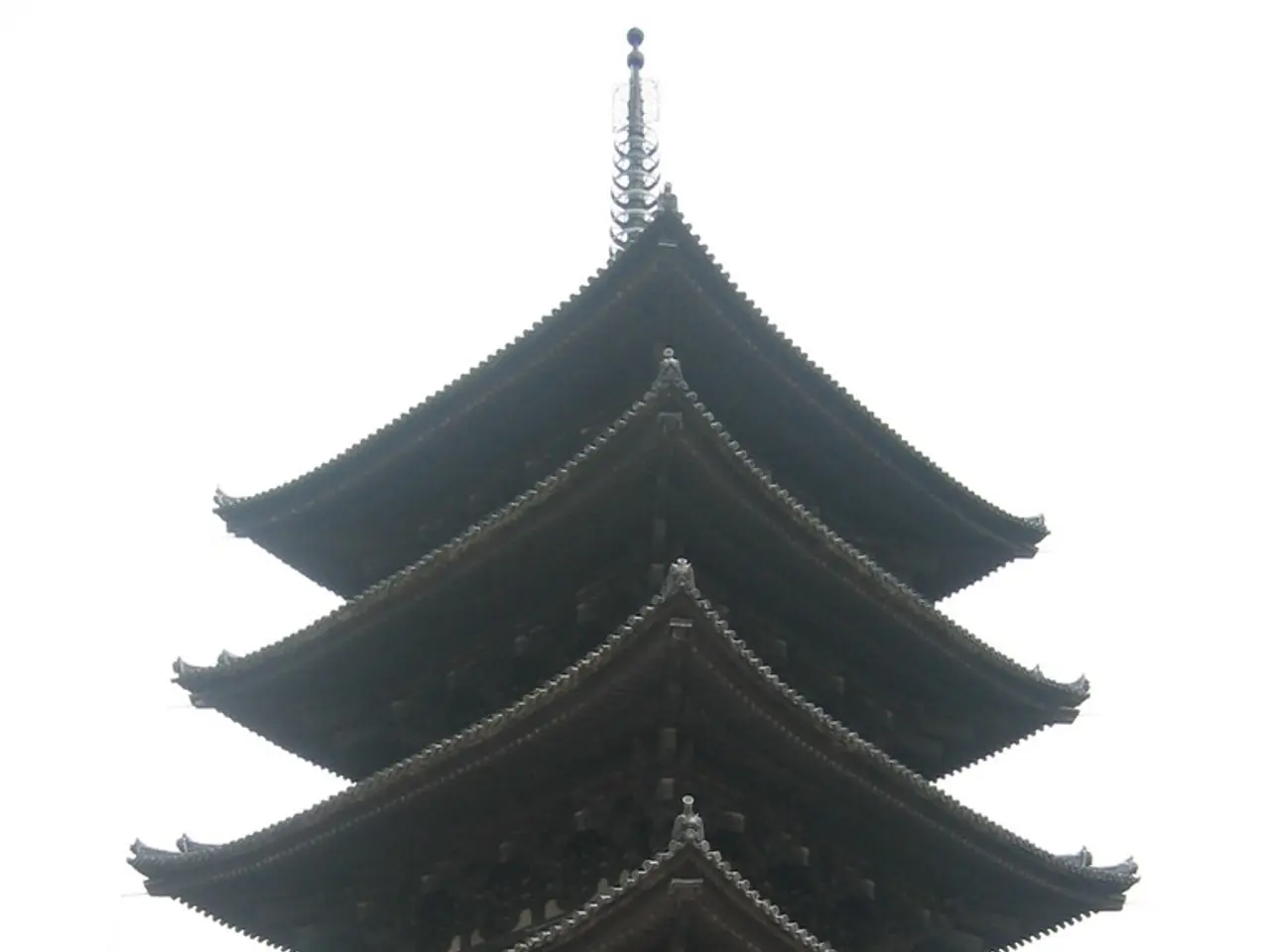"Exploring 'The Governance of China' by Xi Jinping: The Tenth Edition: The Value of Clear Waters and Abundant Greenery"
In the heart of China's ecological development, a principle known as the "two mountains" concept has been instrumental in transforming the landscape from mining areas into verdant hills. This principle, which values "lucid waters and lush mountains as invaluable assets," emphasizes that environmental conservation and economic growth are not mutually exclusive but can coexist and even complement one another[1][2][3][4].
First articulated by Xi Jinping in 2005 during a visit to Yucun Village in Zhejiang province, the "two mountains" concept has been a guiding principle for China's ecological development for the past 20 years[2][3][4]. Yucun Village serves as a shining example of the concept in action, having transitioned from polluting industries such as mining and cement production to eco-tourism and green development[2][3][4].
This fundamental shift in development approach has not gone unnoticed by foreign firms, which are finding opportunities in China's green and low-carbon transition. The commitment to green transformation under the "two mountains" philosophy has accelerated new technology deployment, environmental policies, and community engagement, creating a more sustainable market environment that influences foreign investment strategies and industrial operations in China[1][3][4].
Companies that align with this approach by adopting cleaner technologies and sustainable practices can benefit from China's market and regulatory support, while those relying on polluting operations face increasing restrictions[4]. In essence, the "two mountains" concept is driving a shift towards green innovation and stricter ecological standards, making it essential for foreign firms to adapt to sustainable practices to participate effectively in China's economy.
The green and low-carbon transition in China is more than just a passing trend; it is a significant step towards a more sustainable future. As China continues to implement the "two mountains" concept over the coming years, it is expected that the country will unlock even more dividends, both economically and environmentally.
References:
[1] "China's Green Transition: Opportunities for Foreign Firms." The Diplomat, 2021. https://thediplomat.com/2021/02/chinas-green-transition-opportunities-for-foreign-firms/
[2] "China's 'Two Mountains' Concept: A Guide to Ecological Civilization." China Daily, 2020. https://www.chinadaily.com.cn/a/202009/28/WS5f6f782ba31065315622b23b.html
[3] "Xi Jinping's 'Two Mountains' Concept: A New Approach to Ecological Development." The Guardian, 2018. https://www.theguardian.com/environment/2018/oct/19/xi-jinpings-two-mountains-concept-a-new-approach-to-ecological-development
[4] "China's 'Two Mountains' Concept: A Game Changer for Sustainable Development." World Economic Forum, 2019. https://www.weforum.org/agenda/2019/09/chinas-two-mountains-concept-a-game-changer-for-sustainable-development/
[5] "China's 'Two Mountains' Concept: A Blueprint for Ecological Civilization." United Nations Environment Programme, 2020. https://www.unep.org/china/news-and-stories/story/chinas-two-mountains-concept-blueprint-ecological-civilization
Read also:
- Amidst India's escalating climate crisis, transgender individuals continue to persevere
- Germany's three-month tenure under Merz's administration feels significantly extended
- Governing body allegedly persists in enjoying vacation time amidst Spain's highest danger level due to fires, claims Feijóo
- United Nations Human Rights Evaluation, Session 45: United Kingdom's Statement Regarding Mauritius' Human Rights Record








